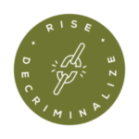Recognizing the shrinking space for civil society in the CEECA region and its effect on public health and HIV response the Rise & Decriminalize movement initiated the Communique “Secure the Future: Civil Society and Human Rights Imperative for Public Health and HIV Response in Central and Eastern Europe and Central Asia” asking the international community, development agencies, donor governments and private donors to acknowledge the gravity of the situation in the CEECA region, imperative to support civil society and communities, shift and re-strategies funding, and also coordinate efforts.
Below is the list of events in which the Rise & Decriminalize movement and/ or Communique were brought up.
● 26 June 2024 – Side event at UNAIDS 54th Programme Coordinating Board “Building a sustainable HIV response for people who use drugs – challenges and opportunities”, organized by Harm Reduction International, EHRA, MENAHRA and others, Ganna Dovbakh (EHRA), highlighted situation with shrinking space for civil societies in the EECA region: “Totalitarian states are not funding harm reduction, so we need to change wishful language to reality, we are not talking about sustainability, but about surviving of harm reduction. War of Russia against Ukraine make harm reduction impossible at occupied territories, but also put more needs to services – now the need in accommodation, food, legal support, mental health as an integral part of support to people using drugs and their families refuge the war. Key challenges: shrinking civic space, naming organizations and activists “foreign agents”, encouraging hate against people who use drugs and LGBTIQ+. Full recording of this discussion is available here. Audience: up to 40 governmental representatives, civil society activists and UN experts from all over the globe.
● 27 June 2024 – UNAIDS Program Coordination Board (PCB) #54, Ganna Dovbakh (EHRA), made the statement at Thematic segment of Sustaining the gains of the global HIV response to 2030 and beyond. The statement was based on the Communique with the key message: If civil society and community organizations disappear due to political pressure, the HIV response in the CEECA region will fail. Full text of the intervention is published here. Audience: up to 300 high level officials.
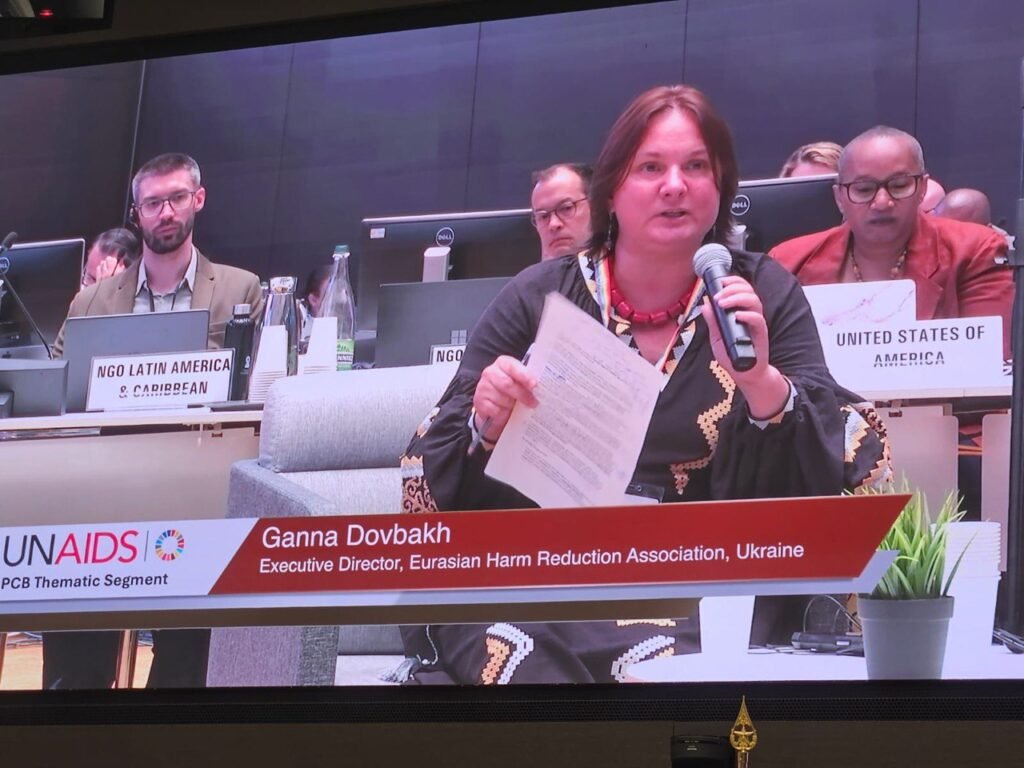
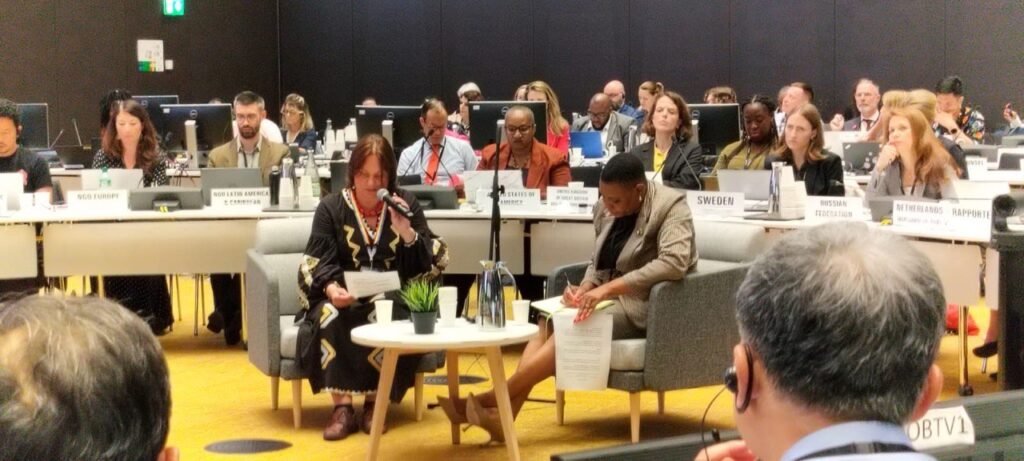
● 21 July 2024 – Informal meeting of civil society and community leaders of regional networks with Dr Hans Henri P. Kluge, WHO Regional Director, included discussion on one of the most urgent issues for HIV response in WHO Europe region – the urgency of the repressive social policy against the civil societies in several countries. Attended by Gana Dovbakh (EHRA). Audience: office of the WHO Regional Director and 20 regional civil society leaders.
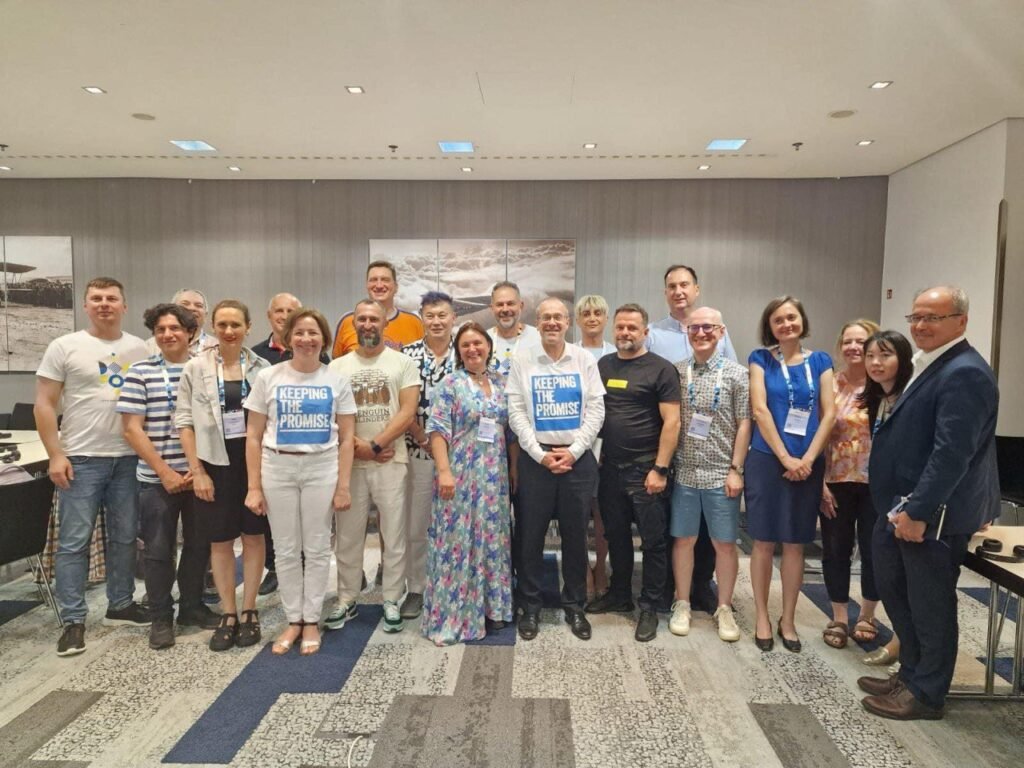
● 21 July 2024 – UNDP Pre – Conference session “From dreams to reality: Achieving the global 10-10-10 HIV targets with and for key populations”. During session 1 “Countdown to change:Can we achieve the 10-10-10 HIV targets by 2025?” Gana Dovbakh (EHRA) presented main challenges of community criminalization in EECA region and key messages of the joint community Communique. During session 3: “More than an emergency: Enhancing the safety and security of key populations” with key bi-lateral and private donors facilitated by Vitaly Djuma, ECOM, Olena Stryzhak, EWNA representative on behalf of Rise & Decriminalize movement asked all participants: “I am representing EWNA, and we now will need to re-register as we could not continue our work as registered in Georgia. Now we will be labeled as “foreign agents”, almost enemy of the nation. This is happening in situation when donors funding is vanishing from Eastern Europe and Central Asia region. How donors and development agencies supporting HIV response, public health and human rights are coordinated and could be coordinated in future in support safety of civil society and community activists to survive in EECA region in context of crises of almost disappearing civil space? Are you ready to commit joint action not business as usual and stay in support of us, activists the EECA region? Could we expect necessary flexibility and resilience from you in supporting safety of activists in our region, who continue their advocacy and rights protection under the danger to be arrested or putted under pressure from law enforcement?” Majority of panelists representing donor foundations committed their support to community activists and services in EECA. Audience: up to 200 AIDS 2024 participants from all over the world, including UN experts, governmental representatives, donors and community leaders.


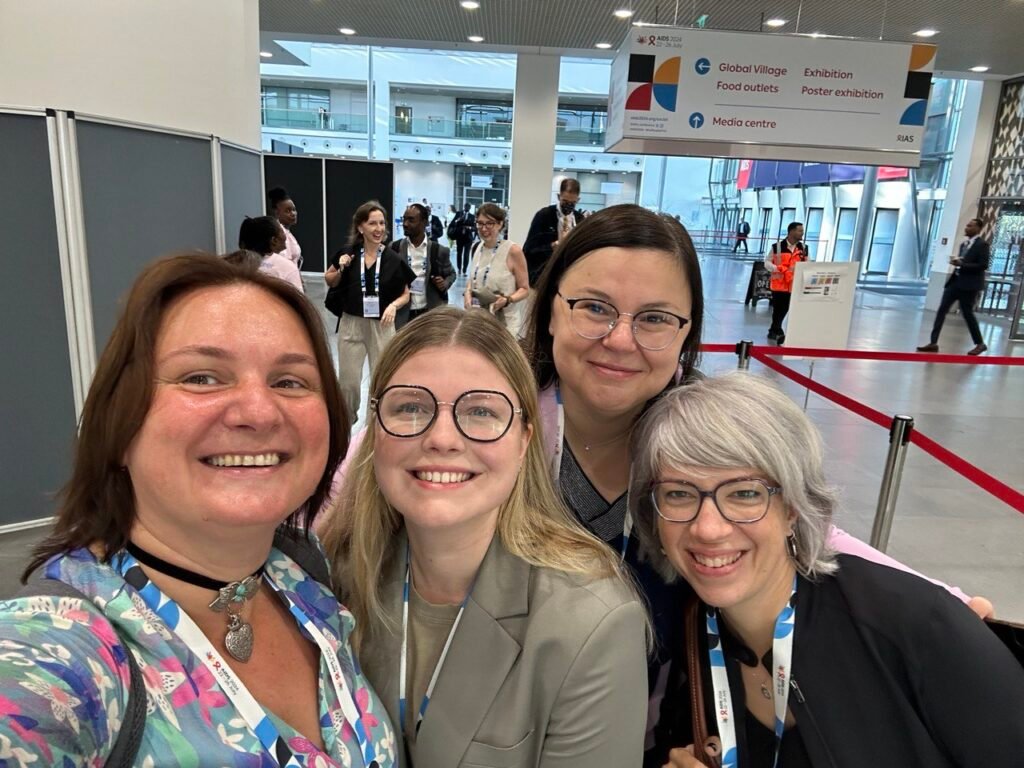
● 22 July 2024 – Launch of UNAIDS Global AIDS Update “The Urgency of NOW: AIDS at a Crossroads”. One of the key speakers from the EECA region, Ganna Dovbakh (EHRA), presented the Communique and highlighted the following: “Decriminalization or ensuring freedom of assembly for citizens as legal act cost nothing, but it save lives, and save our public budgets. If civil society will be repressed to not able to provide peer community-led support to communities, HIV and health response in our region will be not possible. Urgent international attention and support are essential to safeguarding community-led HIV responses, protecting human rights, and ensuring sustainable health outcomes across Central and Eastern Europe and Central Asia.” Full text of the intervention is published here. Audience: up to 25 journalists from all over the world.
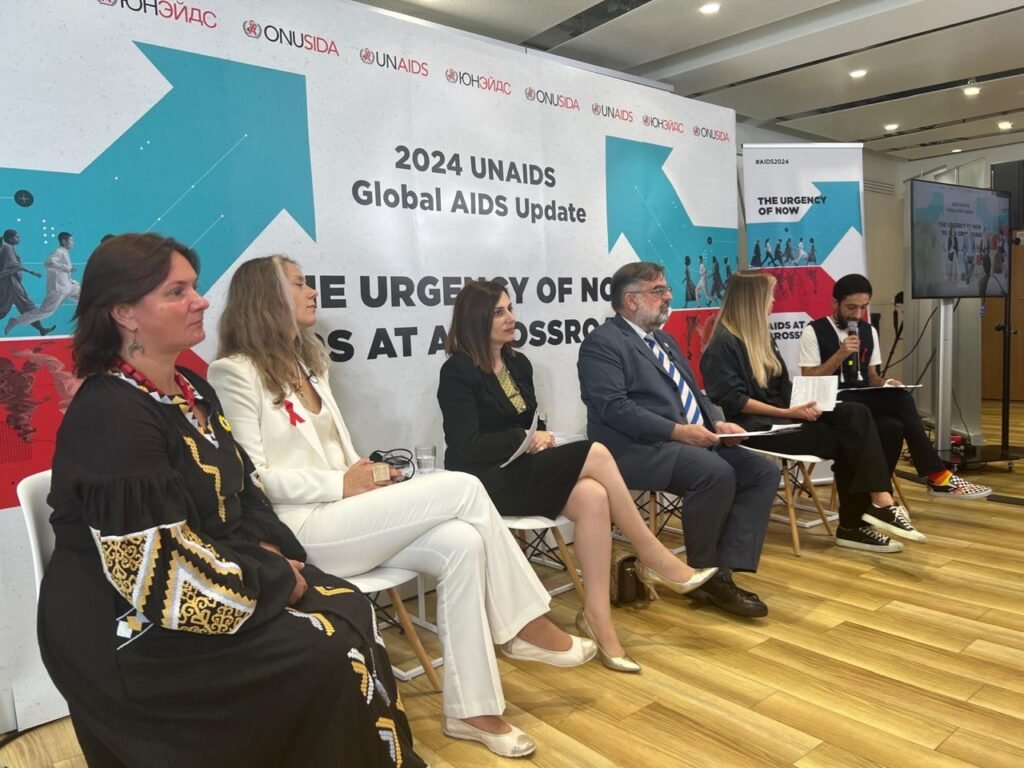
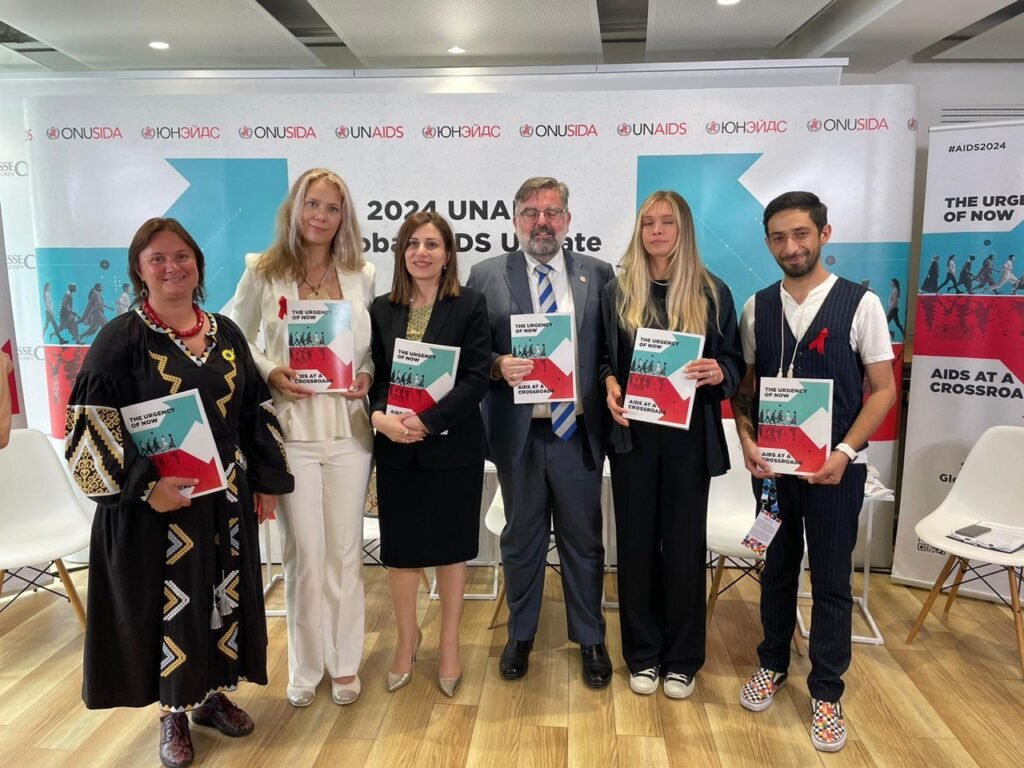

● 22 July 2024 – UNAIDS-organized session “The Societal Enablers: Sustaining and Progressing the HIV Response for Those Still Left Behind” provided a platform for EHRA to discuss critical issues and initiatives in the fight against HIV in CEECA. Among other panelists around the globe, representing community-led networks, Igor Gordon (EHRA) emphasized the persistent challenges in the CEECA region, including criminalization, stigma, discrimination, and gender-based violence, which hinder access to vital health and social services for key populations. Igor provided insights into the specific challenges and responses in countries like Georgia, Kazakhstan, Russia, Ukraine, Tajikistan, and Kyrgyzstan. These examples highlighted the diverse obstacles and the ongoing efforts to improve harm reduction services and decriminalize drug policies. Igor introduced the Rise & Decriminalize movement to session participants. The session underscored the importance of building strong coalitions and receiving support from UN agencies, the Global Fund, and other international bodies.
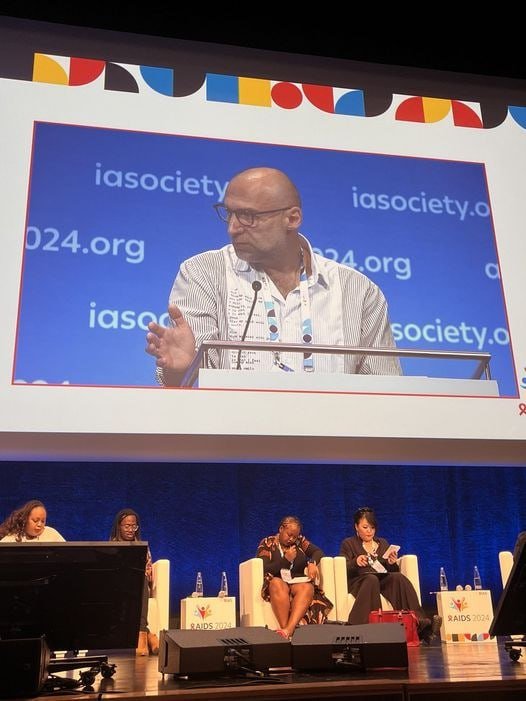
● 23 July 2024 – the high-level side event at AIDS 2024 “Secure the Future: Civil Society and Human Rights Imperative for Public Health and HIV Response in Central and Eastern Europe and Central Asia” organized by Rise & Decriminalize Movement with the support of UNAIDS. Alla Bessonova, Svitlana Moroz (EWNA), Ganna Dovbakh (EHRA), Lasha Nonikashvili, Vitaly Djuma (ECOM), Stasa Plecas (SWAN), Velta Parkhomenko (ENPUD) on behalf of Rise & Decriminalize Movement presented (1) the impact of criminalization on the communities of women living with HIV, people who use drugs, LGBTQI+ and sex workers; (2) shared personal stories of how the shrinking space for civil society (namely “foreign agents” laws and anti-LGBTQI+ propaganda and laws) affects the everyday life; and (3) the threats to public health and HIV response in the CEECA region. Audience: 45 representatives from UN, international agencies, donors, civil society and communities, including high-level speakers: Ambassador Dr. John N. Nkengasong (Ambassador-at-Large and Coordinator of United States Government Activities to Combat HIV/AIDS, PEPFAR), Ambassador Anne-Claire Amprou (Ambassador for Global Health, Ministry of Europe and Foreign Affairs, France), Christine Stegling (UNAIDS Deputy Executive Director), Bience Gawanas (Board Vice Chair of the Global Fund), EJAF, RCF and AIDS Fonds.
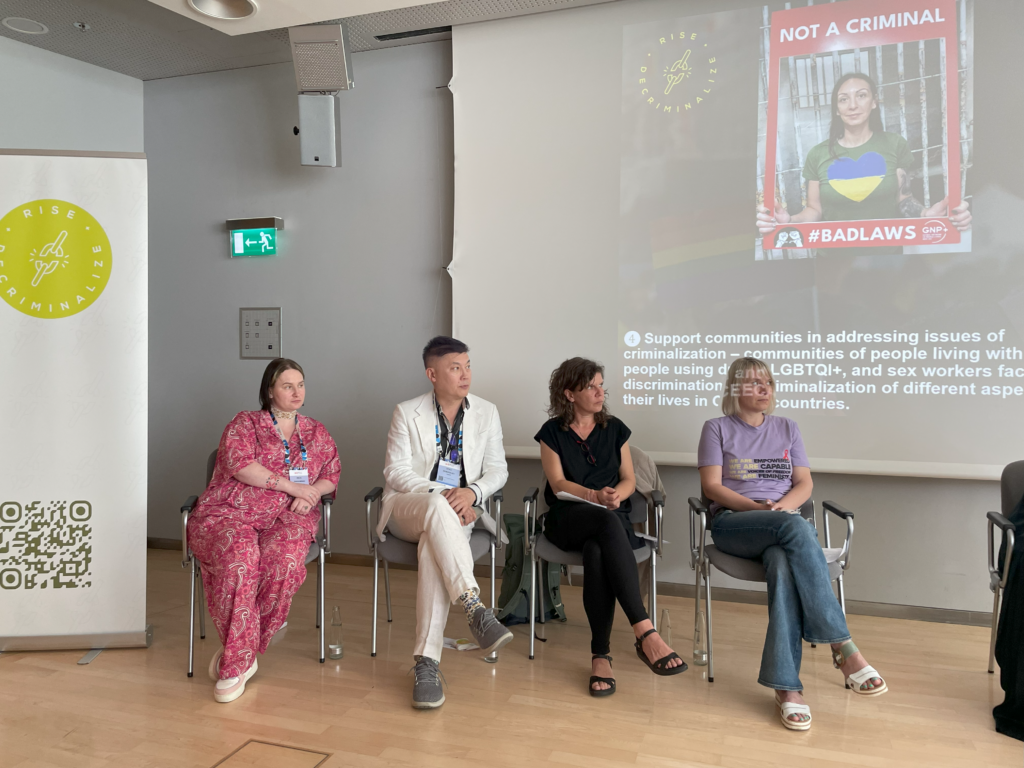
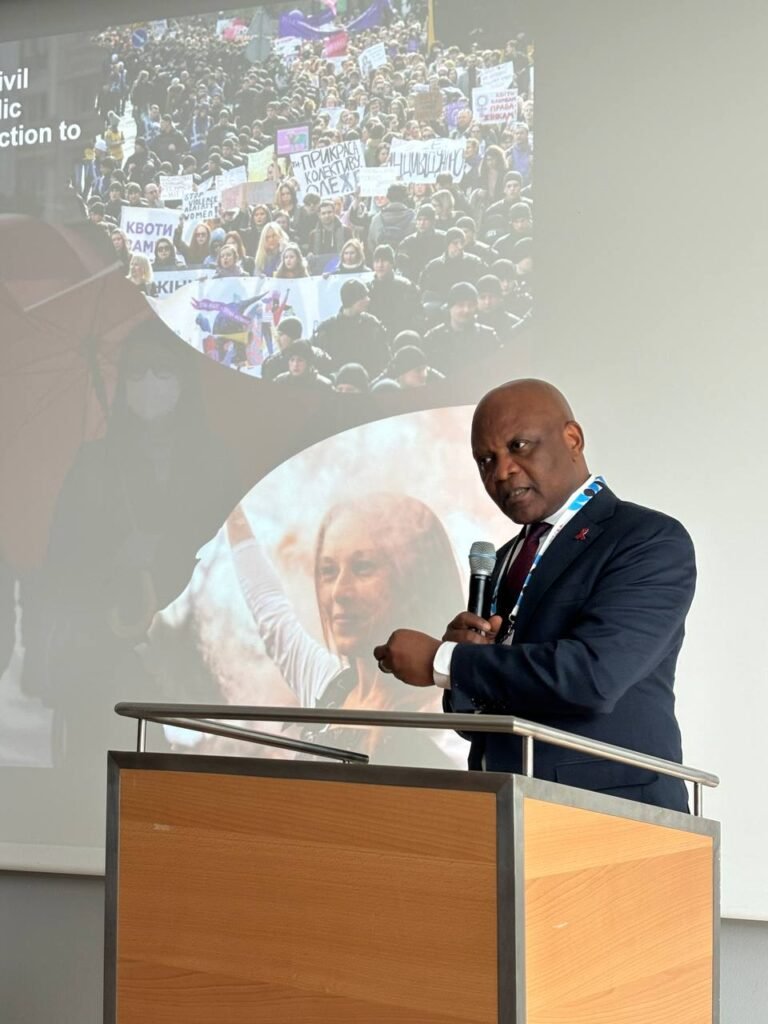


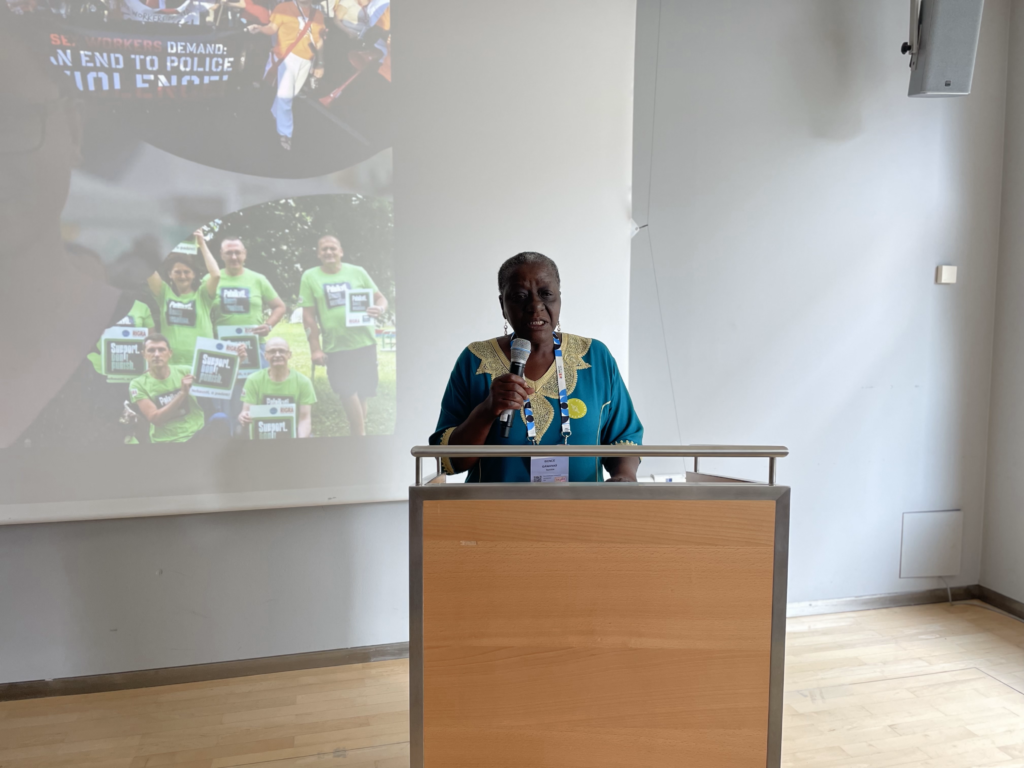
● 23 July 2024 – Press briefing after the high-level side event at AIDS 2024 “Secure the Future: Civil Society and Human Rights Imperative for Public Health and HIV Response in Central and Eastern Europe and Central Asia”. Lyubov Vorontsova, Medea Khmelidze (EWNA), Ganna Dovbakh (EHRA), Vitaly Djuma (ECOM), Velta Parkhomenko (EWNA) on behalf of Rise & Decriminalize Movement, and Eamonn Murphy, Vera Ilyenkova (UNAIDS) presented the urgency of the situation regarding the shrinking space for the civil society in the EECA region. Rise & Decriminalize Movement representatives shared the rationale for uniting advocacy efforts on decriminalization and humanization of national laws to the communities of women living with HIV, people who use drugs, LGBTQI+ and sex workers. Audience: 10 media representatives from the countries of Eastern Europe and Central Asia.
● About the Rise & Decriminalize movement at VirusOff.
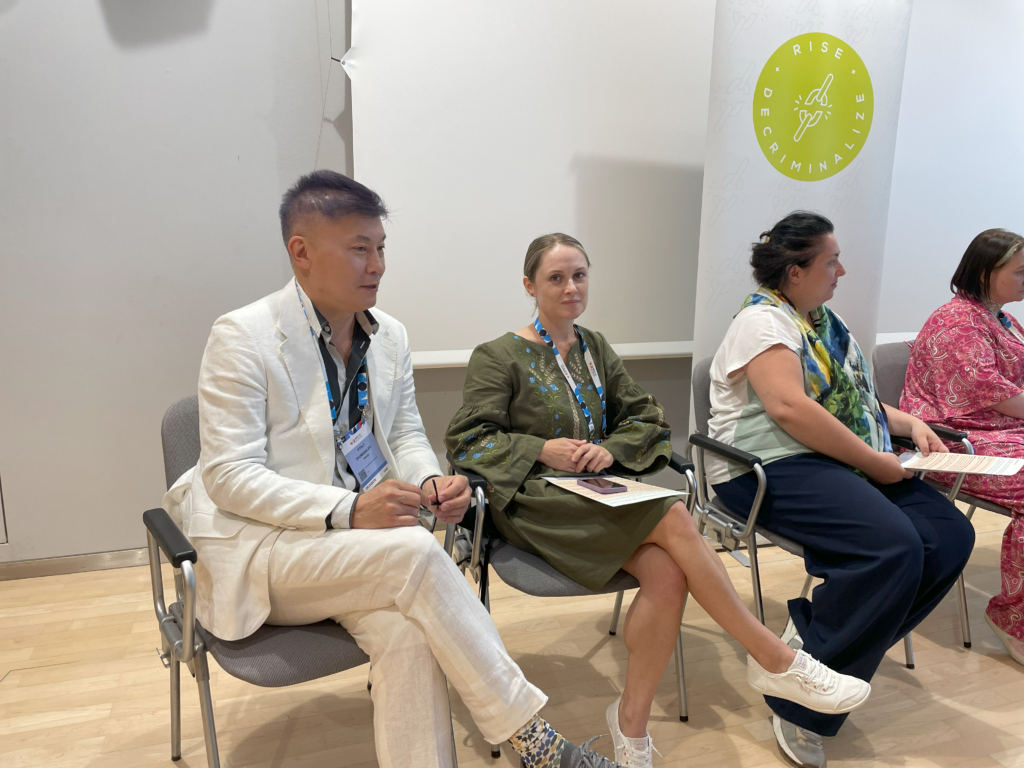
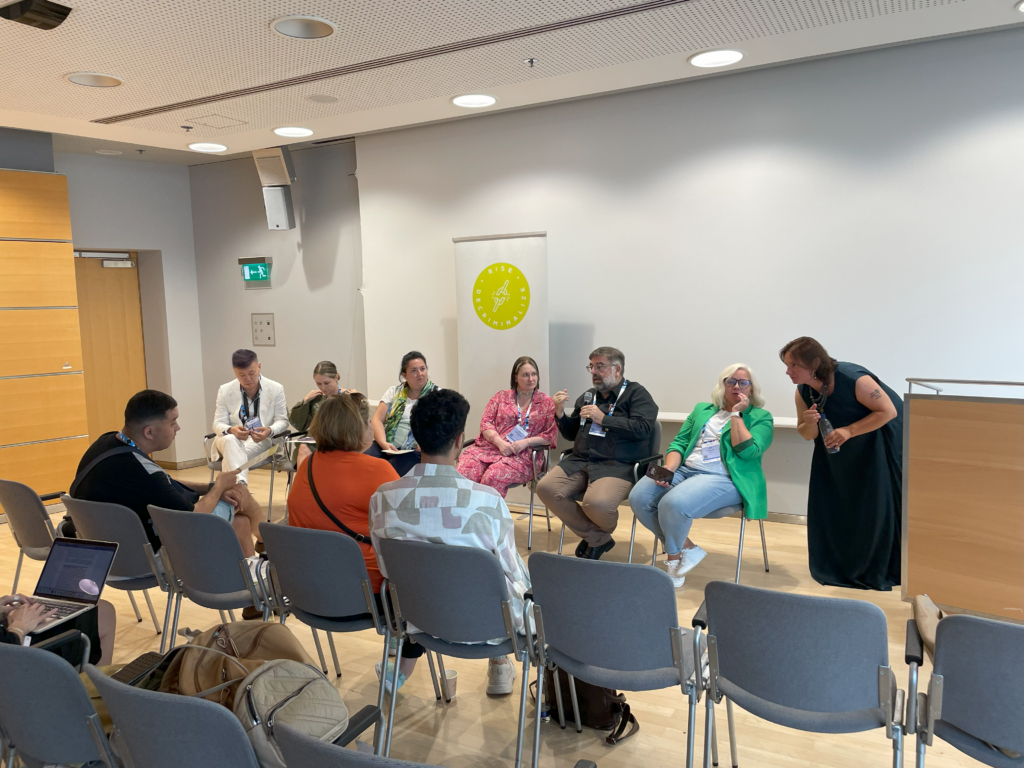
● 24 July 2024 – Session “Strength in community mobilization and unity: Rise & Decriminalize Movement” at the EECA Space of the Global Village at AIDS 2024. The session introduced the Rise & Decriminalize movement, values of united community and present the Communique to participants of AIDS 2024. Ganna Dovbakh, Marija Sketre (EHRA), Lyubov Vorontsova (EWNA), Trajche Janushev (SWAN), Velta Parkhomenko (ENPUD), Vitaly Djuma (ECOM) introduced the Rise & Decriminalize movement, summarized criminalization related challenges faced by communities and discussed advantages for uniting advocacy efforts. Audience: 17 delegates of AIDS 2024.

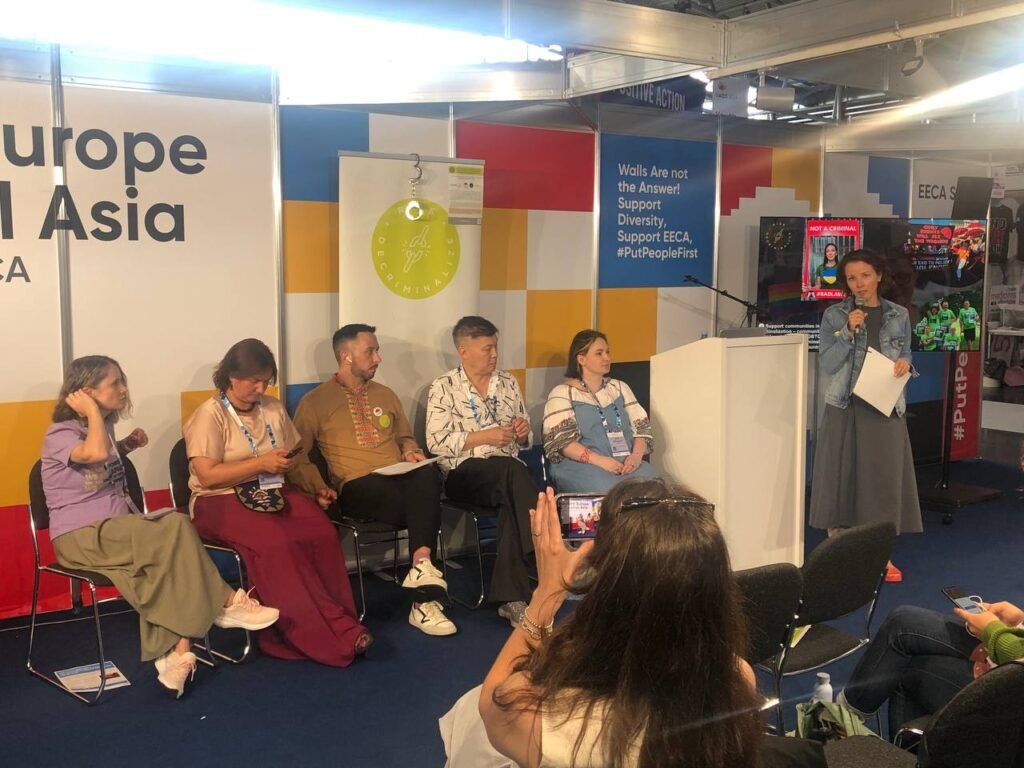

● 24 July 2024 – Workshop “Getting Decriminalization Right: What do good laws look like?” at AIDS 2024, co-organized by UNAIDS, UNDP and GNP+, aimed to facilitate the exchange of experiences and expertise in relation to models of decriminalization and their impact on HIV outcomes. In addition to explaining key challenges around criminalization of drug use and possession, the speaker Ganna Dovbakh (EHRA), informed participants about joint regional community movement Rise & Decriminalize and key messages of the joint Communique (printed copy shared). Audience: up to 200 AIDS 2024 conference delegated from all over the world.
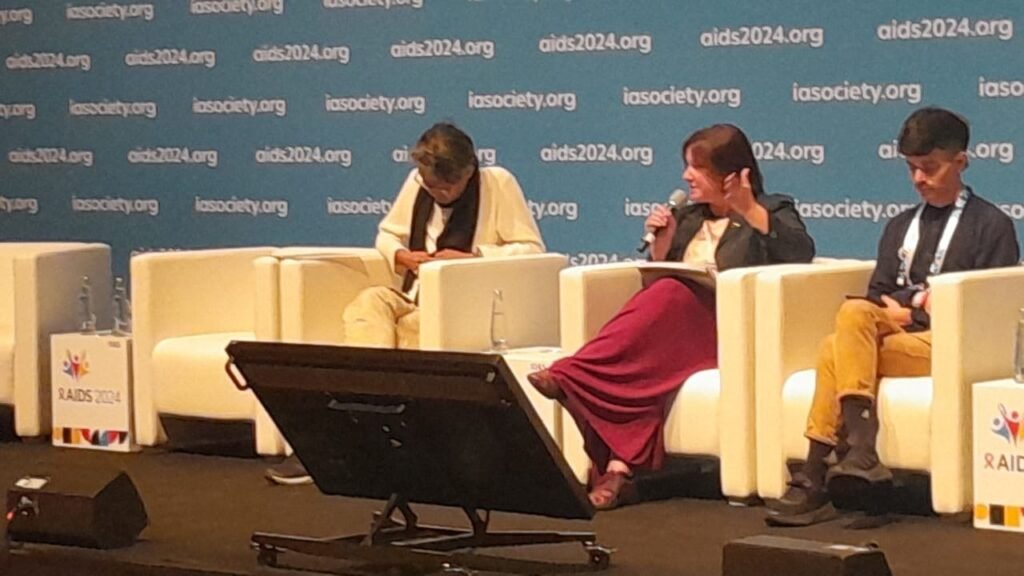
● 25 July 2024 – Media Roundtable “Evolving national and regional politics in Eastern Europe and Central Asia. How does it impact the HIV epidemic?” at AIDS 2024 focused on the EECA region facing the shrinking space for civil society and communities, the Russia’s aggression on Ukraine and consequences these have on public health and HIV response in the region. Anton Basenko (Chair of the Board, International Network of People who Use Drugs (INPUD) and representative of the community of people who use drugs in the Ukraine Cabinet of Minister’s HIV/TB National Council – Community Perspective), speaker of the media roundtable, among other things noted that regional networks have united into the Rise & Decriminalize movement and initiated the Communique to keep the focus of the donor and international community on the EECA region. Audience: 9 media representatives.
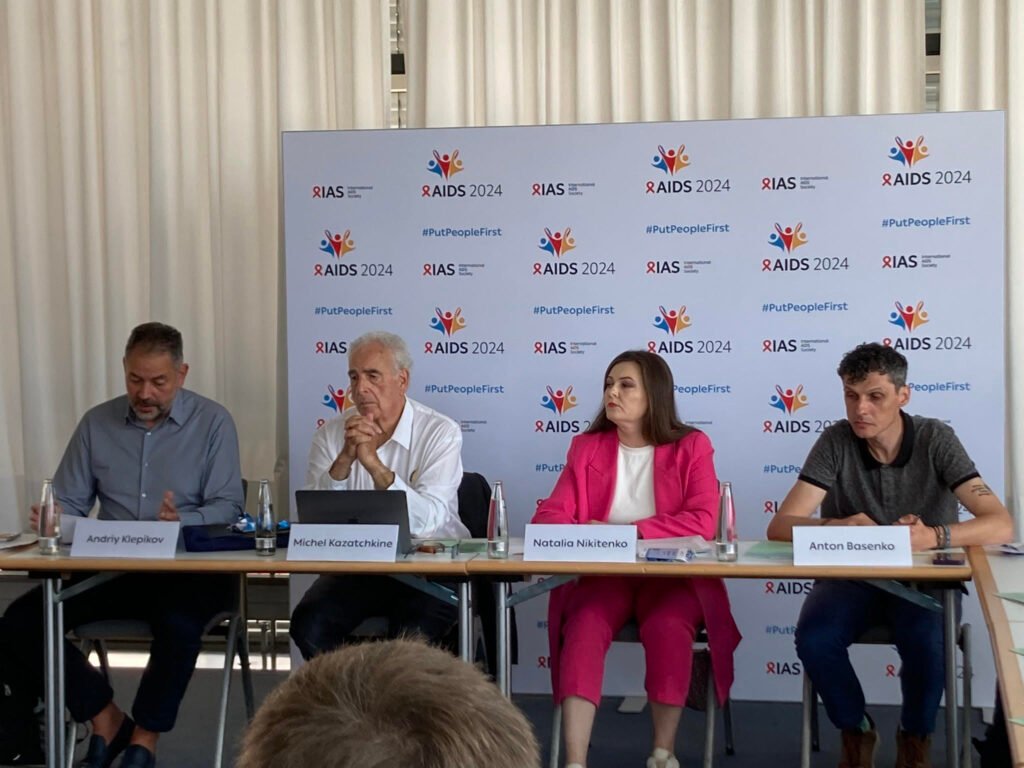
● 25 July 2025 – Demonstration “Together for Diversity, Justice and Health!” organized by Munchner Positive, Deutsche AIDS Hilfe, GNP+, C-EHRN, Aids Action Europe. “Support don’t punish! Sex work is a work! Rise & Decriminalize!” – all communities were shouting at the very center of Munich in the streets near Bavarian parliament. The demonstration brought public attention to the problem of criminalization and stigmatization of key communities, lack of community-led services, for example safe consumption rooms in Munich. “Criminalization of communities, recent tendency to criminalize activists and civic movements in EECA countries – this is what we are fighting with in our region” – said Ganna Dovbakh (EHRA), from the demonstration stage. Audience: up to 400 demonstration participants and citizens of the Munich city, journalists.


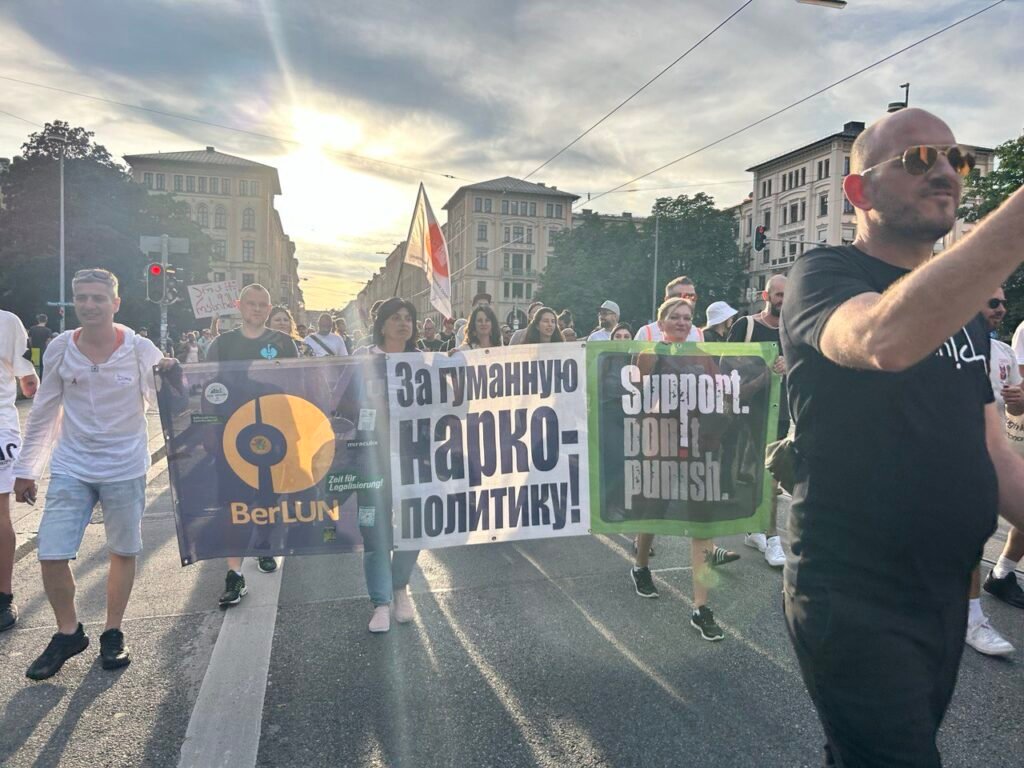
● 26 July 2024 – Closing Ceremony of AIDS 2024, Anton Basenko delivered the speech in which he spoke about importance of staying united, about Rise & Decriminalize Movement and called upon delegates to advocate for decriminalization by shouting repeatedly “Rise & Decriminalize”. Audience: all 10 000 delegates of AIDS 2024 in the plenary room and online.
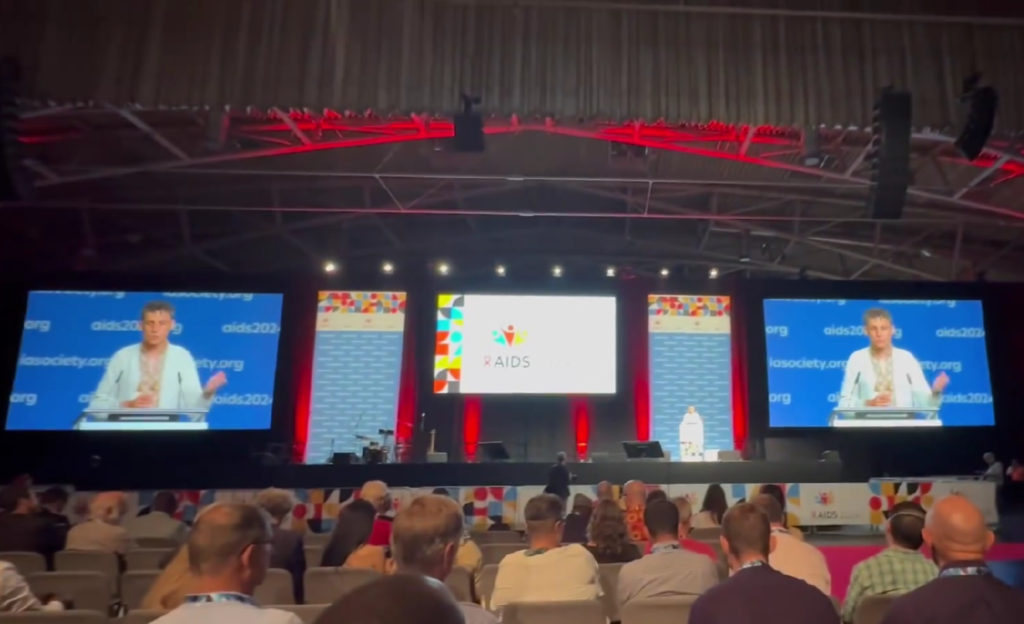
Join us and SUPPORT the Communique!
